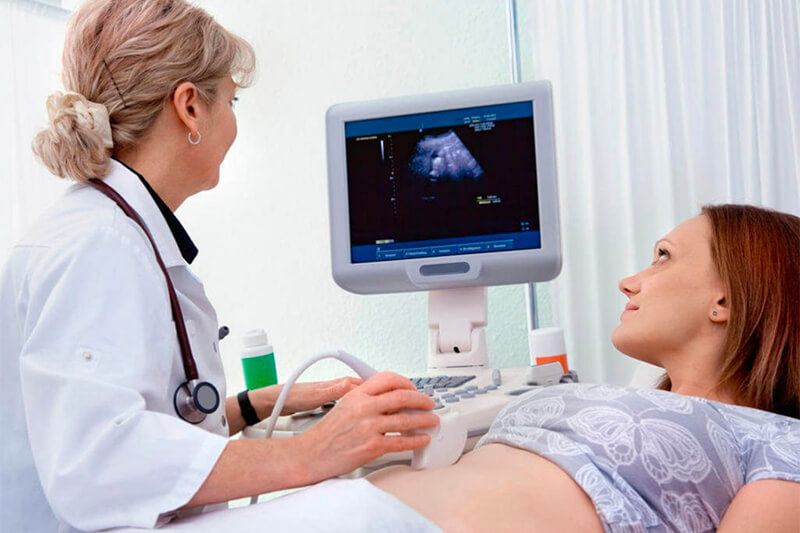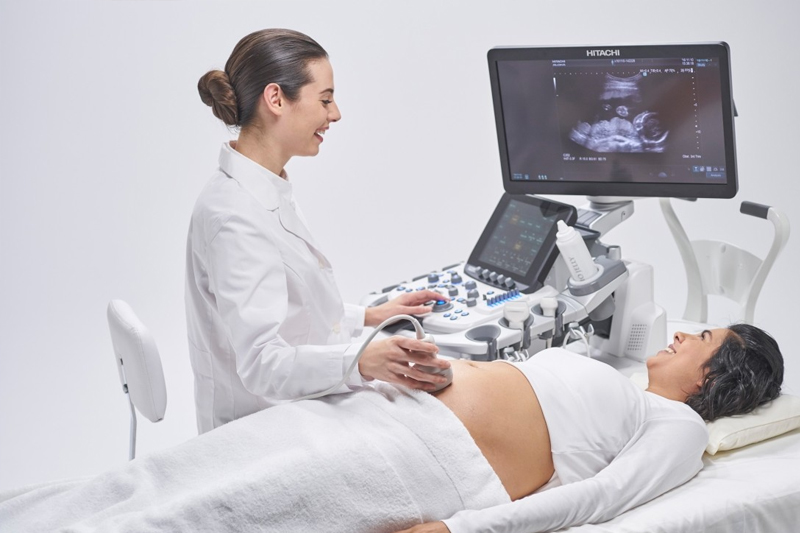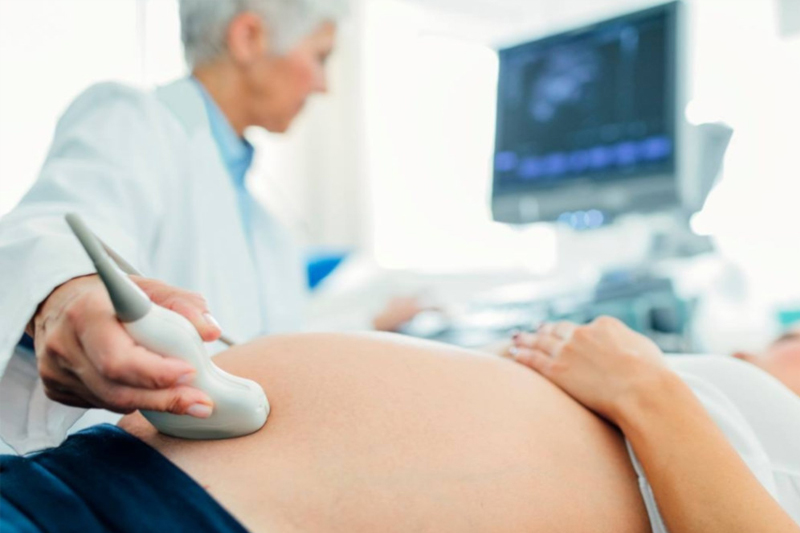There are typically seven crucial prenatal check-up milestones that expectant mothers should be aware of, which generally occur during the first, second, and third trimesters. Additionally, if a mother experiences any unusual health issues, her doctor may advise an increased frequency of prenatal visits to closely monitor her condition.
1 Three Weeks After a Missed Period
 First Prenatal Visit: Confirming Your Pregnancy
First Prenatal Visit: Confirming Your Pregnancy
If you’re experiencing morning sickness, your period is three weeks late, and a pregnancy test confirms it, it’s time for your initial prenatal check-up. This first appointment typically includes an ultrasound and various tests to detect potential health conditions like high blood pressure or diabetes early on. The doctor will also offer advice regarding the mother’s health and the continuation of the pregnancy. Furthermore, a gynecological examination will be conducted to rule out dangerous conditions such as uterine fibroids, ovarian cysts, or infections.
Note: Home pregnancy tests are generally accurate, but confirmation from a medical professional is always recommended.
2 Weeks 11-14: Nuchal Translucency Screening

This is a critical prenatal check-up, where mothers typically undergo 3D and 4D ultrasounds to assess the nuchal translucency and screen for Down syndrome. The ultrasound will also evaluate the baby’s overall development, estimate the due date, and determine if the baby is growing at the expected rate, identifying any potential concerns.
For more information on nuchal translucency screening:
3 Weeks 16-20: Detailed Congenital Anomaly Scan

At the 16-week mark, mothers will undergo a detailed anomaly ultrasound to thoroughly examine the baby’s development and screen for any congenital anomalies or fetal malformations. This is a crucial stage to detect and address any issues, and nutritional adjustments can be made if fetal malnutrition is identified.
4 Weeks 21-25: Focus on Cervix and Ovaries

Prenatal check-ups during this period involve ultrasounds to monitor the baby’s development and screen for abnormalities, with a specific focus on the cervix and ovaries. This stage of the pregnancy can help detect issues like cervical insufficiency or ovarian cysts, allowing for early intervention and ensuring the best possible outcome.
5 Week 26: Prenatal Tests and Vaccination
At week 26, mothers will attend a prenatal check-up, undergo necessary tests, and receive a tetanus vaccine as part of their prenatal care.
For detailed information on prenatal tests and vaccinations:
6 Weeks 31-35: Second Tetanus Vaccine and Baby Positioning

During this period, mothers will receive their second tetanus vaccine and undergo ultrasounds to determine the baby’s position. These ultrasounds will also assess the alignment of the mother’s pelvis with the baby’s weight, ensuring a safe delivery.
7 Week 36: Advising on Delivery Method

This prenatal check-up is crucial as the doctor will advise on the preferred method of delivery, whether it be vaginal birth or a planned cesarean section. In some cases, a C-section may be recommended at 38 weeks due to conditions like placenta previa, a large baby in the breech position, a narrow pelvis, or a previous C-section scar.
After this check-up, it is essential to be vigilant for any signs of labor, especially preterm labor, and to prepare mentally and physically for the birthing process.
Note: First-time mothers should familiarize themselves with these 11 critical milestones to ensure a healthy pregnancy and positive outcome.
Knowledge of these prenatal check-up milestones empowers expectant mothers to proactively manage their health and their baby’s well-being, ensuring they receive timely medical advice and intervention when needed.
The Mystery Unveiled: Understanding the Reasons Behind an Asian Couple Having Two White-Skinned Children
An Asian couple’s journey to parenthood took an unexpected turn when they visited a clinic in the US for IVF treatment. The mother gave birth to two healthy boys with white skin, contrary to the initially announced gender prediction of two girls. Read on to uncover the fascinating story behind this unusual occurrence.
Mastering Pregnancy Tests: Your Ultimate Guide to Accurate Results
Pregnancy tests are a convenient way to confirm pregnancy, but did you know that incorrect usage can lead to inaccurate results? Learn the right way to use a pregnancy test to ensure you get a reliable outcome. Take charge of your reproductive health with this comprehensive guide to mastering the art of accurate pregnancy testing.
“The Ultimate Guide to Using Pregnancy Tests: Get Accurate Results Every Time”
Pregnancy tests are easy to use and provide highly accurate results. However, incorrect usage can lead to inaccurate outcomes. It is important to learn the right way to use a pregnancy test to ensure you get a reliable result. Master the art of accurate testing and take control of your health journey!




































